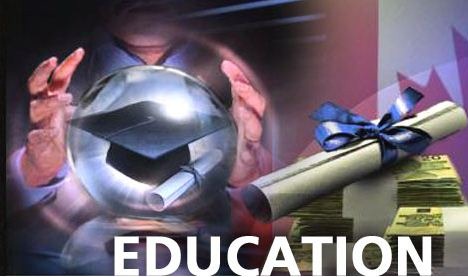Education Industry needs Drastic Internal Changes before going Outbound!
They say to build a sound structure one needs a toughened base to leverage higher on it. If the base is weak, the existence of the whole structure can be viewed at risk.
In the recent months, the HDR ministry has propagated and approve of many reformist movements in the filed of education right from allowing foreign universities to set a franchisee in India to as far as allowing CBSE board to go international in terms of syllabus.
However, before looking to tap the opportunities that lay outside its boundaries, the Indian education industry needs to have a preview at some of its internal systems and operations, at nearer within the home itself.

The Goof-up in JEE-2010 Exam Paper
The IIT Joint Entrance Exam (IIT-JEE) which was conducted on Sunday was appeared by 4.72 lakh aspirants (in 1026 centers across India) to wrestle out for the admission in the premium seats of various prestigious engineering colleges which hardly run into few thousands in number.
In a yet another instance of goof-up of setting question papers, the order of subjects on the question paper, and the sequence of the answer sheet, did not match creating loads of confusions in the mind of the students appearing for the exam. The exam papers carried a printing error as the subject-heads for mathematics and physics paper were interchanged.
To add to their woes, the change in the paper style also had the students baffled and thinking. A glitch was also witnessed in the Hindi version of the JEE exams where one of the questions was not printed.
The JEE-2010 exam comprised of two papers, with each paper having questions of physics, chemistry and mathematics. While the questions in physics and chemistry paper were average in nature, it was the lengthy questions in mathematics paper which seems to have played a trick on the students. Not only were the questions lengthy but also tricky and possibly out of board syllabus.
However, later IIT authorities advised the students in all centers to ignore the subject heads on the Objective Response Sheet, and go by the question numbers. The students were assured that the error would not affect the evaluation.
Technical Glitch in T.Y.Bcom Exam Paper
This technical glitch in setting of question papers at a higher level of JEE-2010 exams is not one-off instance. More recently, the University of Mumbai officials discovered that the Accounts-III paper of the all important final year Bcom (T.Y. Bcom) exam scheduled on April 12 had not yet been printed.
According to a media report, the printers informed the board authorities that they had no slot empty to print the Account-III papers. That apart, the varsity officers were not willing to hand over the printing job to any other printers not enlisted with them, in order to rectify the goof-up.
My Views:
Is this a valid excuse for a renowned university to postpone exams based on houseful engagement of printing issues? A crucial exam at the graduate levels should have been well-planned in advance with the enlisted printers before scheduling the exam time-tables.
If Indian education system cannot come out of such human error oriented goof-ups, it could be difficult to move higher in the value chain of higher education conforming to the international standards and norms.
The Indian education system would be better-off solving such minor blips within its system before looking for any outbound opportunities to tap high standard of education.
Instead of opening up the education industry in a hurry, tighter norms and laws should be formulated domestically, to penalize the erring departments of the relevant authorities to engrave a foolproof system to weed out human errors.
Possibly, Kapil Sibal needs to review the pace of Education reforms introduced by him!
